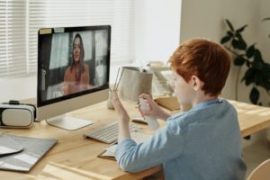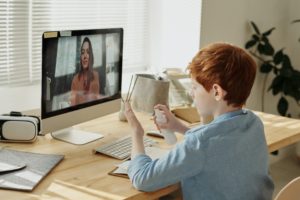

This week’s Psychology Around the Net is, unsurprisingly, heavy on COVID-19 news. Get tips on how to build a psychological first aid kit, the latest on how coronavirus quarantine could affect different kids, ways your media consumption is traumatizing you, and more.
Be well, friends!
How to Build a “Psychological First Aid Kit”: The American Mountain Guides Association recently published “Stress and the Resilience for Coronavirus” which is a collection of mental health resources designed by Laura McGladrey, a National Outdoor Leadership School (NOLS) instructor. McGladrey is also a nurse practitioner who specializes in emergency medicine and psychiatry and the guide was designed to help mountain guides dealing with the stress of COVID-19. However, as Outside‘s Tracy Ross points out, this guide is useful for everyone during the coronavirus pandemic and Ross used it as a springboard for this list of tips to get through this time.
Will Coronavirus Quarantine Mess Up My Kid’s Mental Health for Life? Probably Not. But Poor Kids Are at Risk: Experts are still gathering data, but the general consensus for now is that most kids will come out of this pandemic all right, with young children being poised to bounce back even better than older adolescents and teens. However, generally a child’s resilience is tied to his family’s stability and safety, and kids from already vulnerable families (thinks money problems, food insecurity, poor relationships) likely will suffer the most and need the most help.
Can PTSD Be Transmitted Over the Airwaves? The Impact of Media on Our Mental Health: Some news is necessary; for example, school closings and the latest on your state’s stay-at-home orders. However, constant coverage of the coronavirus pandemic can take a toll on your emotional and mental health. Find out if your media consumption is traumatizing you and get five strategies you can use to build up resilience during COVID-19.
Link Between Obesity and Sleep Loss: Much research in the past has suggested poor sleep quality puts people at risk for obesity because it deregulates our appetites and so leads to more calorie consumption. However, new research out of the University of Pennsylvania School of Medicine finds that it’s not the poor sleep that causes obesity; rather, it’s excess weight that causes poor sleep.
How Do I Make This Work? Being Neurodivergent, Working Remotely, Kids + Families: “For those autistics or otherwise neurodivergent adults who need to work remotely due to COVID19 , a huge part of how it’s working is whether there are young or school aged children at home, and how well they balance their own needs with the sensory and personal challenges of families. This is true for both neurodiverse and neurotypical parents. Those who are fortunate have available childcare; for many, that’s impossible and this is “do it yourself.” Kids take time and attention, and without childcare, it’s very hard to get anything done.” Marcia Eckerd has much to say on the matter of autistic or otherwise neurodivergent parents finding ways to balance working from home while surrounded by kids and other family members during this coronavirus pandemic.
Health Care Workers Seek to Flatten COVID-19’s ‘Second Curve’ — Their Rising Mental Anguish: Doctors and nurses surveyed in China, Italy, and the United States report experiencing many mental health problems during this coronavirus pandemic such as increased stress, anxiety, depression, and insomnia, and the burden is only going to rise according to Roy Perlis, a psychiatrist at Massachusetts General Hospital: “We have to try to flatten this curve, but then there’s a second curve we’re going to have to flatten: the mental health consequences of the pandemic.”
Photo: Pexels
The post Psychology Around the Net: April 25, 2020 appeared first on Comfort Shields Therapy.
